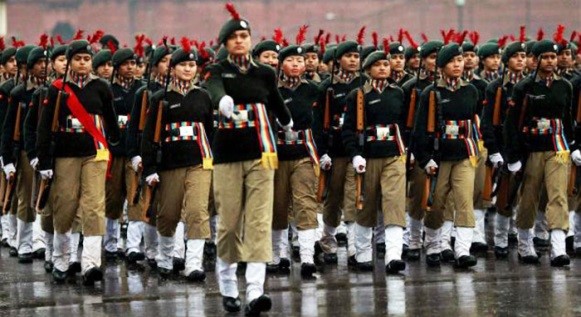 Cyberspace has become a full-blown war zone as governments across the globe clash for digital supremacy in a new, mostly invisible, theatre of operations. Once limited to opportunistic criminals, cyber-attacks are becoming a key weapon for governments seeking to defend national sovereignty and project national power.
Cyberspace has become a full-blown war zone as governments across the globe clash for digital supremacy in a new, mostly invisible, theatre of operations. Once limited to opportunistic criminals, cyber-attacks are becoming a key weapon for governments seeking to defend national sovereignty and project national power.
One can see the emerging contours of cyber warfare from strategic cyber espionage campaigns, such as Moonlight Maze and Titan Rain, to the destructive, such as military cyber strikes on Georgia and Iran and the new dimension of recent attacks on corporates like Sony Entertainment. Human security and international conflict are entering a new phase and domain in their long histories of existence. The shadowy battlefield called cyber space requires a new breed of warriors, Cyber Warriors.
A cyber warrior, like his Special Forces counterpart, is a distinct breed requiring a very high standard of professionalism, training, ethics, discipline, initiative and focus. He will have to be proactive, innovative, a self-starter with a technical aptitude and a strong desire for learning so as to keep himself abreast of emerging technologies and be able to build his knowledge and skills through continuous updating. The organization, work culture, age and physical fitness standards would have to be totally flexible – the emphasis being on knowledge, merit, aptitude, attitude and capabilities.
Organisations in India are also witnessing a huge growth in cyber-attacks and intrusions. The 2014 Annual Security Report reveals that 2013 was a ‘particularly bad year’ with cumulative annual threat alert levels increasing by 14 per cent since 2012. Another report by Norton (Symantec) indicates that India lost up to USD 8 billion to financial crimes in 2014. While the National Cyber Security Policy, announced in July 2013, stipulates the availability of 500,000 cyber warriors by 2018, the country faces a big challenge with a shortage of more than 470,000 trained cyber security professionals as of last year. Considering that it takes about three years to have a well-trained cyber warrior and that there are varied issues of training infrastructure, quality of talent availability, attrition, continuous upgradation, budget, certification standards and retention, an innovative approach is required which maximises the available resources in a given time frame.
One such approach is to establish a ‘Cyber Wing’ in each the four divisions of the National Cadet Corps (NCC) of India.
Parliament passed the National Cadet Corps Act in 1948, thus creating the National Cadet Corps (NCC). The motto of the NCC is Unity and Discipline. The Aims of the National Cadet Corps are:
· To develop qualities of character, courage, comradeship, discipline, leadership, secular outlook, spirit of adventure and sportsmanship and the ideals of selfless service among the youth to make them useful citizens.
· To create a human resource of organised, trained and activated youth, to provide leadership in all walks of life including the Armed Forces and always available for the service of the nation.
These aims have a very large coincidence with the requirements of a cyber-warrior as mentioned above. Cyber space is a playground of the millennials and the NCC provides just the right pool to pick up India’s cyber warriors. The Senior Division of NCC has 365,000 young boys from colleges; the Junior Division has 658,000 young boys from schools; the Senior Girl’s Division has a strength of 69,000 and the Junior Girls Division 73,000 members. This pool of over a million young boys and girls, even at 15 per cent acceptance rate, should provide the country with nearly 150,000 cyber warriors in the next three years, who could then be trained and organised as Integrated Cyber Defence Teams comprising of operators, technicians, analysts, intelligence experts and developers of cyber weapons and tools. These teams would train among themselves, with other countries in exchange programmes, with the cyber command/units and be available to the Defence Forces on call. The cadets must be given encouragement by way of financial rewards, recognition, scholarships for further studies in cyber security including in countries abroad and be provided with appropriate certifications. They must be given preference for enrolment in the cyber warrior cadres of the country, the Armed Forces and the industry. They must have a viable, attractive and challenging career path. Selected NCC cadets should be able to work from their homes and tasked for computer network exploitation, cyber forensics and vulnerability discovery of nominated networks and systems. Their identity must be kept secret; they must be given necessary resources and legal protection; and they must report only to select officials.
India’s vulnerability to cyber-attacks is going to increase exponentially with the development of infrastructure and programmes such as Digital India, National Optical Fibre Network, e-Governance, e-commerce and e-Services. The NCC provides a ready resource for picking up India’s cyber warriors in the available time frame. This will also start the organisational transformation of the NCC and make it a 21st century force relevant to the aims set for it by Parliament.
Lieutenant General (retd.) Davinder Kumar is former Signal Officer-in-Chief of the Indian Army.